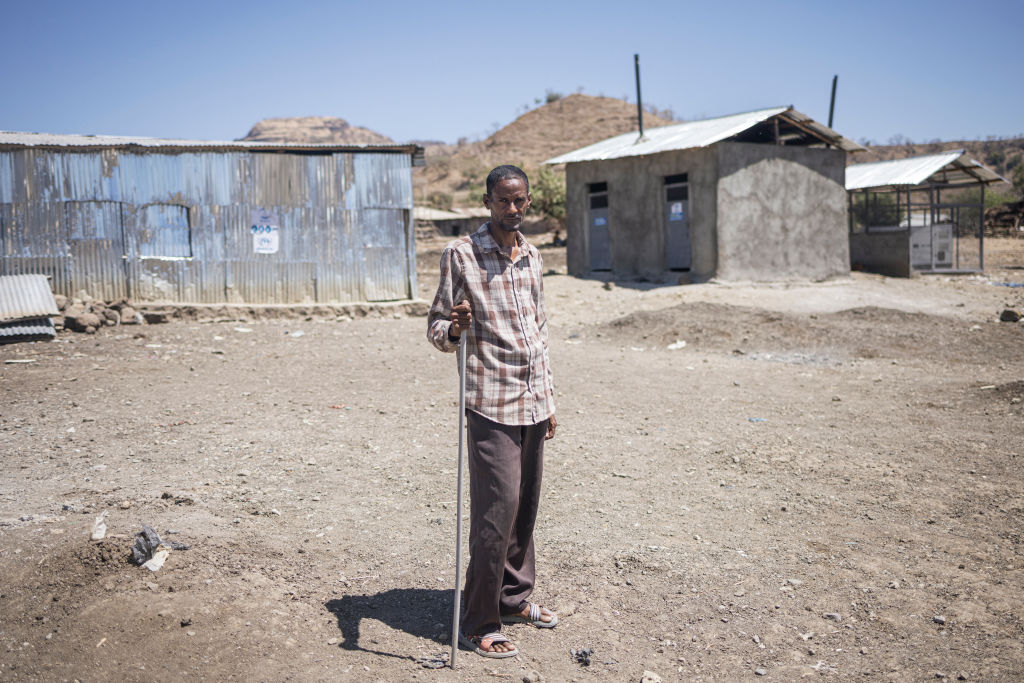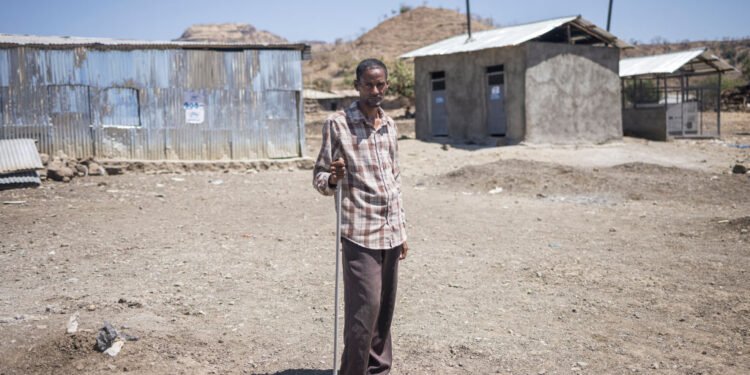
ADF STAFF
Aynalem was on a bus traveling from Ethiopia’s Amhara region to Addis Ababa in late August when the vehicle was ambushed by militants from the Oromo Liberation Army (OLA), which claims to fight for the self-determination of the ethnic Oromo group.
A 21-year-old biomedical engineering student, Aynalem said the attackers were young and carried assault rifles. They boarded the bus and ordered it to drive for hours. When it stopped, Aynalem was forced to call her parents, as her abductors demanded a 500,000-birr (about $4,400) ransom.
Several excruciating days passed.
“They made us sleep on the grass, we only had dirty water and a loaf of bread,” Aynalem, a pseudonym, told Agence France-Presse as she began to weep. “I experienced horrific things. I was sexually assaulted.”
Aynalem’s mother said the family had to “go into a lot of debt” to free her.
The militia killed the 34 other passengers whose families could not afford ransom demands.
Driven by political instability and swirling conflict, including ethnic tensions, abductions are a growing concern around Ethiopia, but especially in the sprawling, restive Amhara and Oromia regions, where state forces are spread thin. In Amhara, Ethiopia’s military has battled Fano regional militias for more than a year. In Oromia — the region surrounding Addis Ababa, the national capital — the military contends with the OLA.
Students, civil servants, farmers and workers from various industries, including those working for foreign-owned businesses, were initially the most-targeted victims. But now, anyone can be a victim as abductions have spread to new areas for a variety of reasons.
The OLA has not gained control of a single urban center after more than five years of insurgency. Its threats to take over the capital have not come to fruition and funding from overseas supporters is believed to have dried up, The Economist reported. This has caused splinter groups to proliferate and resort to kidnapping and other crimes to stay afloat.
The government has also lost its monopoly on force in large parts of the country, leaving security vacuums. Officials and rebels are known to cut deals, undermining the public’s trust. As The Economist reported, victims of kidnapping regularly accuse officials and security forces of involvement, either by ignoring the crimes or taking a share of ransom payments.
And paying a ransom does not guarantee that a kidnapping victim will be spared. In late August, militia members abducted 2-year-old Nolawit Zegeye from the Amhara town of Gondar. Five days later, her body was found in a yard. The baby’s father, who works as a driver for a private company, and mother, who works at a barbershop, had paid a ransom of 200,000 birr ($1,654), Ethiopia’s Addis Standard newspaper reported.
The girl’s death led to a public protest that turned deadly when security forces opened fire on people as they went home, witnesses told the newspaper. Four people died, including a woman and two rickshaw drivers. Officials framed the assault as an effort to maintain order, but witnesses disagreed.
“No demonstrators tried to seize weapons from security forces or carry out any other attacks,” a witness told BBC Amharic.
The trend of kidnappings in Ethiopia began in November 2019 when 17 students were kidnapped from Dembidollo University in Oromia. A national outcry ensued over the government’s perceived lack of transparency over the kidnappings. A Deutsche Welle report noted that a lack of thorough investigations often makes it difficult for authorities to trace and address the ongoing scourge despite growing public concern.
A man in Oromia paid 100,000 birr ($827) to free his brother, who was kidnapped on a bus traveling through West Shewa in June 2023. “This is a pandemic,” the man told The Guardian. “Kidnapping is happening everywhere. The rebels have made it a way of life because it’s easy money for them.”
The trend shows no signs of abating. At least 100 people were kidnapped for ransom in Amhara and Oromia in one week in June 2024. “Recent and frequent kidnappings in Oromia and Amhara regions show how prolonged conflict emboldens criminals and weakens (the) rule of law,” U.S. Ambassador Ervin Massinga wrote on social media platform X.
In September, six Ethiopian Electric Power workers were abducted while working on a geothermal project in Oromia. The kidnappers demanded 10 million ETB (almost $83,000) for their release.
“The company is doing its best to secure their release peacefully,” Ethiopian Electric Power spokesman Moges Mekonnen told Deutsche Welle.
The post Kidnappings in Ethiopia’s Amhara, Oromia Regions Stoke Fear appeared first on Africa Defense Forum.










